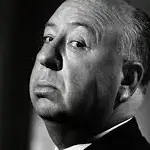Marriage is hard. I wouldn’t personally understand, but I’m sure some of you can attest to that statement. When two people marry, we believe they’ve been able to overcome their struggles as a couple and move on to the next stage. They know each other inside and out and still accept one another—we assume, but can never be sure. But what's more important than the marriage itself is our perception of it. What does it look like from the outside? What do people think about us as a couple? Who is the better partner? Who is in control? The primal questions of a marriage.
What are you thinking? How are you feeling?
What have we done to each other?

We like perfect love stories with happy endings that make us think we’ll be able to achieve that one day. I like them, you like them, and Amy Dunne really likes them. In fact, she likes them so much she would kill for it. Everyone handles rejection differently. For some, it makes them want the person even more. For others, it can trigger a self-worth crisis. But for Amy Dunne, rejection fuels a mission to destroy the one who denies her. It’s a brutal yet cathartic story when you really delve into who Amy is as a person, the reason for her actions, and why she gets away with it.
Ever since director David Fincher brought Gillian Flynn’s best-selling novel Gone Girl to the screen in 2014, I’ve remained torn over whether Amy can be classified as an antihero or an irredeemable monster. I feel as if the divided reaction to Amy Dunne speaks to our own feelings about female rage, in contrast to the quiet anger we often expect women to suppress.
When Amy first meets her future husband, Nick Dunne (Ben Affleck), he is immediately drawn to her charisma, and vice versa. He spends his time doting, love-bombing, and ensuring that he’ll be there for her through thick and thin. Ironically, this sentiment should go both ways, but while water might be thick, blood runs thicker. Nick will later go on to describe his wife as a ‘calculated, murderous, psychopath.’

Early in the marriage, Amy is confident and sure of herself, she's able to handle anything and is always by her husband's side. But when new stress factors are added to the equation—like both of them losing their jobs—Nick is unable to handle it with reason and support, so Amy is forced to lash out. Amy even reiterates to Nick that she doesn’t like to be a "naggy" person, always having to tell him what to do (as if it’s wrong to have expectations of your partner), but she is instead met with disdain and betrayal.
We learn that Amy's obsession with maintaining a perfect image of marriage is nothing more than a facade, but then so is Nick's. There’s no doubt that Amy Dunne is a somewhat irrational person. Her marriage issues, while certainly distressing, are fairly typical—her husband is cheating, they always bicker, and she’s losing her sense of self.

Amy’s reaction to Nick’s infidelity is what propels the story to its glory—but for me, it introduces interesting gender dynamics about aggression and how we are allowed to express it. There's a glaring disparity in how we expect men and women to behave. I find that Amy represents a hyperbolized idea of society’s high expectations for women. As a classic overachiever, she believes she can succeed at anything—including crime. But this is a double-edged sword, because when Amy expects this same standard from Nick, it backfires. This is when Amy realizes that to win this game, she must subvert typical stereotypes against Nick, destroying him in the process.
Amy doesn’t just kill; she orchestrates. Her plan to frame Nick for her murder is not a spur-of-the-moment revenge plot but a year-long meticulous preparation. She forges years of diary entries, fakes a pregnancy, manipulates financial records, and even stages a twisted treasure hunt to create an airtight case against her husband. Every step of her plan is calculated with surgical precision—no loose ends, no room for error.

Most killers try to hide their crimes. But Amy understands the power of media and makes hers a public spectacle, turning herself into America’s missing sweetheart while branding Nick as a monstrous, abusive husband. She understands that people believe in the most compelling narrative, not necessarily the truth. By using her good-girl image and playing the perfect victim, she ensures that the world sees her as the victim, even as she frames an innocent man. Unlike typical movie psychopaths, Amy doesn’t kill out of random cruelty or for the thrill. Her motives stem from deep-seated resentment, betrayal, and an obsessive need for control in her relationships.
Many people, at some point, have felt underappreciated, betrayed, or have pretended to be something they’re not in the name of love. Amy just feels these emotions at a heightened level, making her both terrifying and strangely compelling. Amy is not just brilliant—she’s adaptable. When her plan takes an unexpected turn, she doesn’t crumble. Instead, she pivots, manipulating an obsessive ex from her past into 'rescuing' her, and then executes yet another frame job. Unlike most killers, who unravel when things go off-script, Amy thrives under pressure.
My feelings about Amy were conflicted by the ending—after all that, she returns to her negligent husband, who put on a show and coerced her into coming back. They will presumably live out their days in more lies and deception, now that he's bound to her by pregnancy. Is this really the happy ending she wanted? The one I wanted? I realized then that Amy’s wish was never to be free of Nick, but to continue a fictitious perception of happiness and most importantly, be in control.

The first shot of the film shows Amy resting her head in Nick's hands, her expression cowering and afraid. The last shot is vastly different, now he's the one in fear. There is no retribution, no final showdown where she meets her demise. She earns back her control the way Nick subconsciously wants her to and wins the game he started to play.
When Gone Girl first came out, Amy was so fascinating to me because I had truly never witnessed an iconically horrendous female villain. I was so used to seeing men being portrayed as psychopaths and serial killers—to an almost glorifying extent—that I never considered the idea of a woman like Amy within the realm of possibility. Amy gives an edge to the femme fatale, an escape from ordinary female characters who always do the right thing and act the right way. That's why I was surprised to see backlash to the movie from women calling it an anti-feminist film. This reaction, I think, was the irony that writer Gillian Flynn wanted to highlight. Amy might not be a good person—she’s exceedingly manipulative and would probably ruin my life if I met her—but she sure as hell is fun to watch.
I hate Amy Dunne in many ways but also admire her in others. As an onscreen killer, I respect that she doesn't rely on violence alone, but on emotional and psychological warfare—a far more captivating ploy. Nothing is fair in love and war, but Amy turns love into a battlefield, perception into a weapon, and society’s expectations into a shield. She’s proof that sometimes the most dangerous people aren’t the ones holding the knife—they’re the ones holding the narrative.

























































View replies 1
View replies 4
View replies 2
View replies 1
View replies 1
View replies 2
View replies 0
loved this piece, you make me want to rewatch gone girl through the ishika lens hehe
View replies 0
View replies 0
View replies 0
See collapsed comments